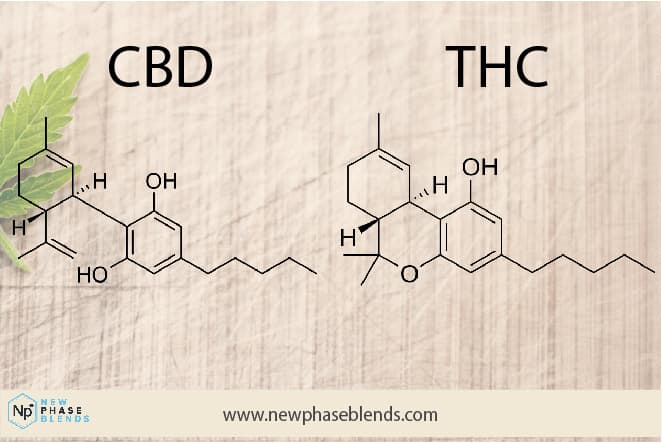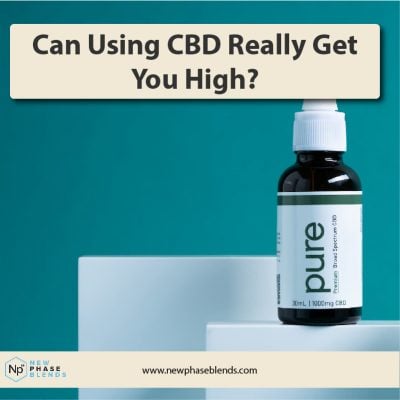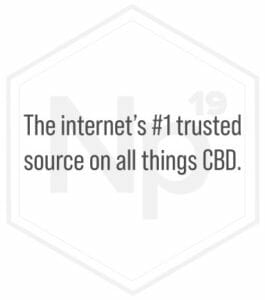Cannabidiol (CBD) products are becoming increasingly popular for their purported health benefits. But one common question about CBD is whether it can get you high like marijuana. The answer is no – CBD does not induce the same psychoactive effects as tetrahydrocannabinol (THC), the primary compound responsible for marijuana’s high. But why is that?
Hemp-Derived CBD Products Won’t Get You High
The 2018 Farm Bill legalized hemp cultivation in the United States. For cannabis plants to qualify as legal hemp, they must contain no more than 0.3% THC. This means you can consume hemp-derived CBD products without worrying about psychoactive side effects. The trace THC levels are far too low to induce a high.
Broad spectrum CBD products take extra precautions to remove all THC while retaining other cannabinoids and terpenes. CBD isolates strip away everything except CBD. Both broad spectrum CBD and isolates ensure you avoid THC entirely. But some prefer full spectrum CBD, which retains those trace amounts of THC.
While not enough to get you high on their own, some believe the THC may work synergistically with CBD to enhance its therapeutic effects – a phenomenon known as the “entourage effect.” So while full spectrum CBD carries an infinitesimal risk of THC-induced high at very high doses, it provides the full cannabinoid profile of the hemp plant. Reputable brands ensure their CBD potency is high enough to avoid the need for huge servings.
How Does CBD Work Without the High?
As mentioned, CBD does not directly activate CB1 receptors. Instead, it stimulates the endocannabinoid system (ECS), a biological network responsible for regulating vital functions. The ECS produces its own endogenous cannabinoids (endocannabinoids). When ingested, CBD interacts with endocannabinoid receptors and enzymes. This enhances the effects of endocannabinoids in the body, helping restore homeostasis and health. So while THC triggers a dopaminergic response, CBD does not flood the ECS with cannabinoids. It merely balances and optimizes what’s already present.
This allows CBD to reduce anxiety, seizures, pain and inflammation without intoxication. Think of CBD like a multivitamin for your ECS. While essential for health, it simply promotes proper functioning rather than altering consciousness.
CBD vs THC: Understanding the Key Differences
CBD and THC are both cannabinoids derived from the cannabis plant. While THC is found in high concentrations in marijuana, CBD dominates the makeup of hemp. Hemp and marijuana are two variations of the Cannabis sativa plant.
Hemp naturally produces higher levels of CBD, while marijuana produces more THC. When consumed, THC binds directly to cannabinoid receptors called CB1 in the brain.

This triggers the release of dopamine and causes marijuana’s signature intoxicating effects. CBD does not directly bind to CB1 receptors. Instead, it stimulates the endocannabinoid system indirectly, which can help restore balance in the body without alteration of mental state. So while 0.3% or more THC content can make you high, CBD products with less than 0.3% THC cannot. This is the main difference between CBD and THC.
Is CBD Legal?
Under federal law set forth by the 2018 Farm Bill, hemp-derived CBD containing no more than 0.3% THC is legal in the United States. However, some state laws are more restrictive on CBD sales. Laws and attitudes surrounding CBD are rapidly evolving as its benefits become better understood.
Will It Show on a Drug Test?
It’s unlikely CBD will make you fail a drug test, but not impossible. Those concerned about drug testing or living in states with CBD restrictions may opt for broad spectrum or isolate products to reduce this risk. Most drug screens test for THC, not CBD. But full spectrum CBD may contain enough THC to produce a positive result in some cases.
The Bottom Line on CBD and Getting High
While CBD and THC share similarities, the differences in their chemical structures and interactions with the ECS mean CBD will not cause the intoxicating “high” linked to THC and marijuana. So whether you choose a full spectrum, broad spectrum, or isolate CBD product, you can reap the wellness benefits of CBD without psychoactive side effects. Just be sure to consult your doctor before adding CBD to your health regimen.












